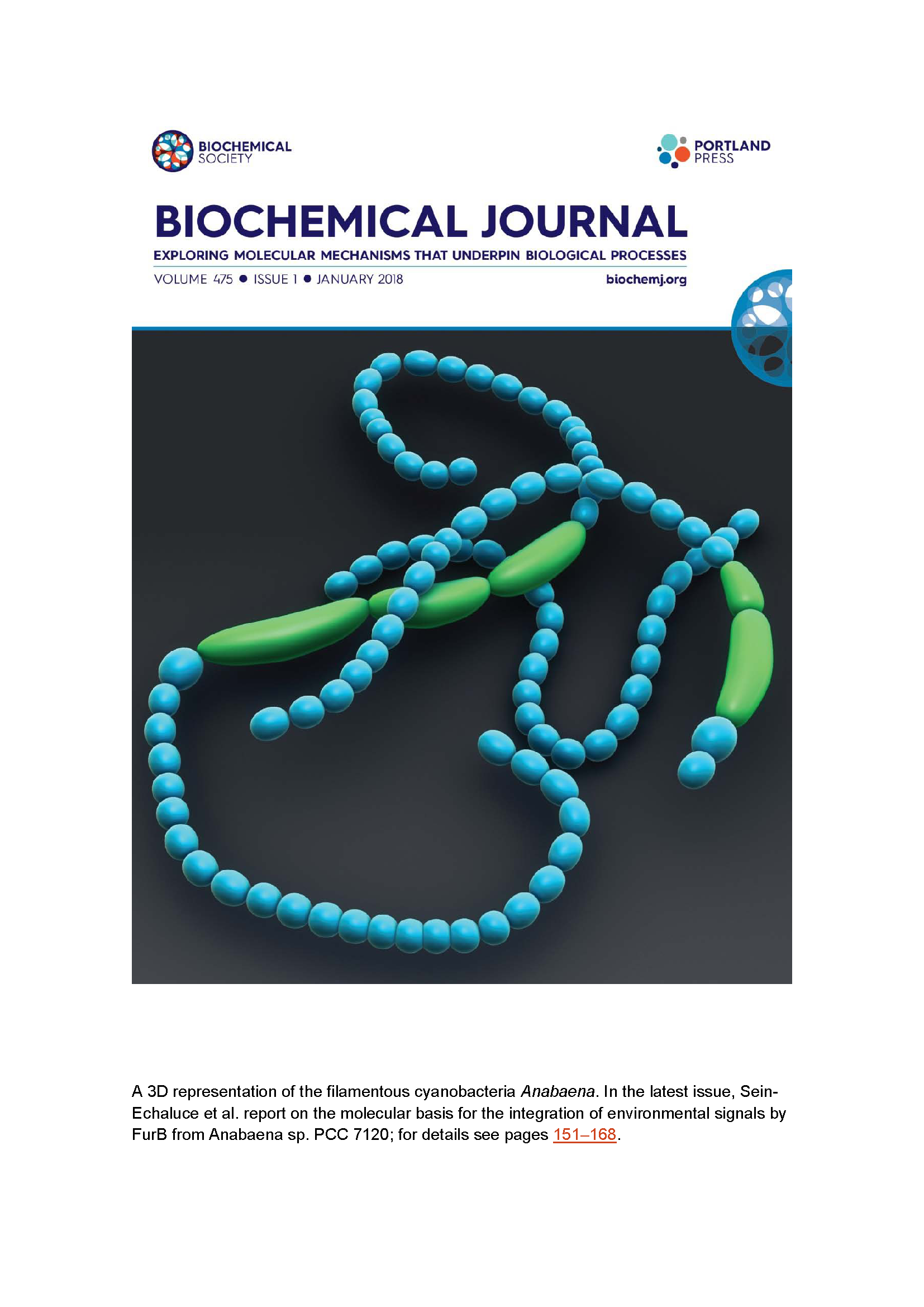Biochemical Journal Q1 Unclaimed
The Biochemical Journal is one of the world's leading bioscience journals, publishing high-quality scientific research. It is dedicated to the development of all fields of biochemistry, cellular and molecular biology and is owned by the Biochemical Society. Established in 1906, this long-standing, core title is published twice-monthly and supported by Editorial offices in London, Beijing and San Diego as well as by a truly international Editorial Board. The journal publishes high-impact review It has an SJR impact factor of 2,064.
Biochemical Journal focuses its scope in these topics and keywords: protein, human, kinase, characterization, escherichia, factor, binding, cells, receptor, regulates, ...
Type: Journal
Type of Copyright: CC BY
Languages: English
Open Access Policy: Open Choice
Type of publications: Research articles, Reviews, Ed
Publication frecuency: -


2590 €
Inmediate OA0 €
Embargoed OA0 €
Non OAMetrics
2,064
SJR Impact factor298
H Index106
Total Docs (Last Year)511
Total Docs (3 years)9566
Total Refs2180
Total Cites (3 years)511
Citable Docs (3 years)3.93
Cites/Doc (2 years)90.25
Ref/DocOther journals with similar parameters
Cell Stem Cell Q1
Molecular Cell Q1
Cell Research Q1
Annual Review of Plant Biology Q1
Nature Cell Biology Q1
Compare this journals
Aims and Scope
Best articles by citations
A 63 kDa phosphoprotein undergoing rapid dephosphorylation during exocytosis in Paramecium cells shares biochemical characteristics with phosphoglucomutase
View moreIdentification of amino acid residues, essential for maintaining the tetrameric structure of sheep liver cytosolic serine hydroxymethyltransferase, by targeted mutagenesis
View moreClavulanate inactivation of Staphylococcus aureus beta-lactamase
View moreDomain architecture of the smooth-muscle plasma membrane: regulation by annexins
View moreArginyl-tRNA synthetase with signature sequence KMSK from Bacillus stearothermophilus
View moreAttractin' more attention -new pieces in the obesity puzzle?
View moreA comprehensive model of purine uptake by the malaria parasite Plasmodium falciparum: identification of four purine transport activities in intraerythrocytic parasites
View moreThe antibody response to myoglobin is independent of the immunized species. Analysis in terms of replacements in the antigenic sites and in environmental residues of the cross-reactions of fifteen myoglobins with sperm-whale myoglobin antisera raised
View moreCloning and characterization of a maize cytochrome-b5 reductase withFe3+-chelate reduction capability
View moreThe plasma membrane of Leishmania donovani promastigotes is the main target for CA(1-8)M(1-18), a synthetic cecropin A-melittin hybrid peptide
View morePurification and characterization of a glutathione S-transferase Omega in pig: evidence for two distinct organ-specific transcripts
View moreRole of the conserved amino acids of the 'SDN' loop (Ser130, Asp131 and Asn132) in a class A beta-lactamase studied by site-directed mutagenesis
View moreActive sites of beta-lactamases. The chromosomal beta-lactamases of Pseudomonas aeruginosa and Escherichia coli
View moreThe PAX6 gene is activated by the basic helix-loop-helix transcription factor NeuroD/BETA2
View moreComparative analysis of the influence of the high-mobility group box 1 protein on DNA binding and transcriptional activation by the androgen, glucocorticoid, progesterone and mineralocorticoid receptors
View moreThe distribution and metabolism of arachidonate-containing phospholipids in cellular nuclei*
View moreCharacteristics of physiological inducers of the ethanol utilization (alc) pathway in Aspergillus nidulans
View moreCharacterization of a novel binding partner of the melanocortin-4 receptor: attractin-like protein
View moreRab5 and Rab11 mediate transferrin and anti-variant surface glycoprotein antibody recycling in Trypanosoma brucei
View moreProtein phosphatase 1 binds to phospho-Ser-1394 of the macrophage-stimulating protein receptor
View moreAltered purine permease activity in a purine-analogue-resistant mutant ofSaccharomyces cerevisiae
View moreEffects of disrupting the 21 kDa subunit of complex I from Neurospora crassa
View moreCalpain facilitates GLUT4 vesicle translocation during insulin-stimulated glucose uptake in adipocytes
View moreCardiolipin prevents rate-dependent uncoupling and provides osmotic stability in yeast mitochondria
View more
Comments